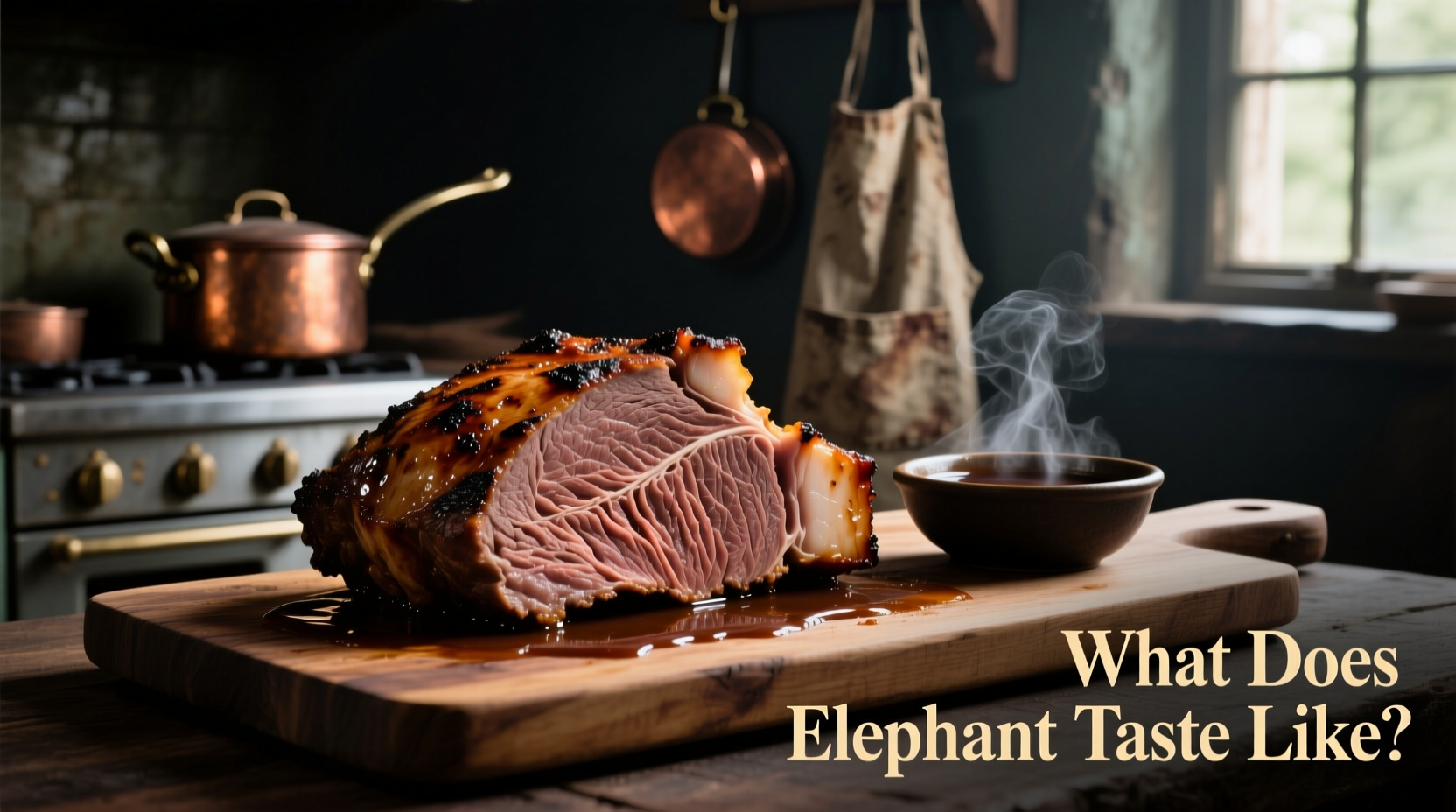Understanding Elephant Meat: Facts Beyond the Curiosity
When exploring unusual culinary questions like what does elephant taste like, it's essential to begin with critical context: consuming elephant meat isn't just uncommon—it's illegal in virtually all countries. The African forest elephant is classified as Critically Endangered, while both the African savanna elephant and Asian elephant are listed as Endangered on the IUCN Red List. International trade in elephant products is prohibited under CITES Appendix I, making consumption both unethical and unlawful in most jurisdictions.
Historical Context of Elephant Consumption
While modern ethical standards and conservation efforts make elephant meat consumption unacceptable today, historical records indicate limited consumption in specific contexts. During the late 19th and early 20th centuries, some Central African communities reportedly consumed elephant meat during periods of extreme food scarcity. These practices were never widespread due to the immense difficulty of hunting elephants with traditional methods and the enormous quantity of meat one animal provided.
| Time Period | Regions with Historical Accounts | Documented Consumption Context |
|---|---|---|
| Late 1800s | Congo Basin | Rare consumption during famine conditions |
| Early 1900s | Central African Republic | Occasional hunting by isolated communities |
| Mid-1900s | Parts of Cameroon | Documented in anthropological studies as emergency food |
| Present Day | Global | Illegal everywhere with no documented legitimate consumption |
What Limited Accounts Describe the Taste?
Based on scarce historical documentation from anthropological studies, elephant meat was described as having a strong gamey flavor with a texture that was exceptionally tough. Early 20th century accounts from explorers in Central Africa noted that the meat required days of slow cooking to become tender enough to eat. Some descriptions compared it to beef but with a more pronounced iron-rich taste and fibrous texture.

Legal Status Around the World
The legal framework surrounding elephant meat consumption is clear and consistent across most nations. Under the Convention on International Trade in Endangered Species (CITES), all elephant species receive the highest level of protection. This means:
- No international trade in elephant meat or products is permitted
- Domestic consumption is illegal in all African range states
- Importing elephant meat to any country violates international law
- Poaching elephants carries severe penalties including lengthy prison sentences
Why Elephant Meat Isn't an Option for Modern Food Exploration
For those curious about what elephant meat tastes like for culinary exploration, several critical factors make this question purely academic:
- Conservation status: With fewer than 415,000 African elephants remaining in the wild, every individual matters to species survival
- Legal consequences: Violating CITES regulations can result in fines exceeding $100,000 and prison sentences up to 10 years in many countries
- Ethical considerations: Elephants are highly intelligent, social creatures with complex emotional lives
- Health risks: Bushmeat from large mammals can carry dangerous zoonotic diseases
Responsible Alternatives for Game Meat Enthusiasts
If you're interested in exploring game meats with distinctive flavors, several legal and sustainable options exist that provide similar culinary experiences without endangering protected species:
- Bison: Offers a rich, slightly sweet flavor with leaner profile than beef
- Venison: Provides a clean gamey taste that's widely available and sustainably harvested
- Ostrich: Surprisingly similar to beef in texture but with lower fat content
- Wild boar: Delivers a robust flavor profile that satisfies those seeking "wild" tasting meats
Supporting Conservation Instead of Consumption
Rather than focusing on what elephant meat tastes like, consider how culinary curiosity can support conservation efforts. Many organizations offer opportunities to learn about elephant habitats and conservation through ethical ecotourism. Supporting sustainable agriculture in elephant range countries helps reduce human-wildlife conflict by providing alternative livelihoods to communities that might otherwise turn to poaching during difficult times.











 浙公网安备
33010002000092号
浙公网安备
33010002000092号 浙B2-20120091-4
浙B2-20120091-4